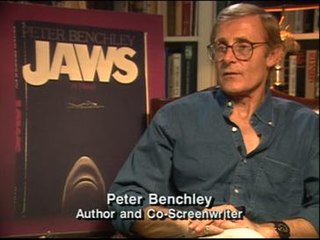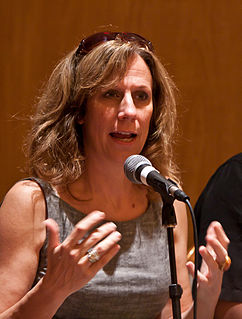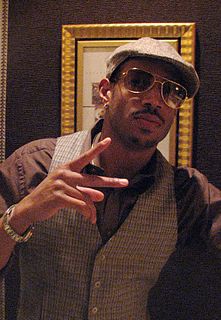A Quote by Ann Druyan
I believe that we are a story-driven species and that we understand how things are put together, in the context of narrative. It's a shame that science hasn't been taught that way, in a long time. It's usually the fact completely devoid of any human experience or any idea of how the scientist came to that conclusion.
Related Quotes
Most people don't put things together. Geologists study the surface of the earth and geological phenomena. Meteorogists study the weather. That isn't science. Science is the study of all things that affect human beings. They have to be together! A meteorologist has difficulty talking with a sociologist, because they don't understand each other. You can't teach sciences in 'bits'; you have to bring it all together. Science is a way of thinking - a way at arriving at conclusions without your own opinion in it.
I think any information about any type of art form, it's always the right time. But since the last one, I could see there were many things about the culture of DJing that we don't really talk about. We don't really look at how the music is made, how it's conceptualized, how it's put together. We talk about the equipment and the software, but we don't talk about the reasons why we put the music together in the first place.
Sharks have everything a scientist dreams of. They're beautiful?God, how beautiful they are! They're like an impossibly perfect piece of machinery. They're as graceful as any bird. They're as mysterious as any animal on earth. No one knows for sure how long they live or what impulses?except for hunger?they respond to. There are more than two hundred and fifty species of shark, and everyone is different from every other one.
I just think that also controlling women is a way to control the whole narrative. And so I think when you've oppressed a people for a really long time, you're terrified to give them any power because they may have some reflection of how horrible you've been and you're terrified of being treated that way. All that we want is to be our best selves, but that's hard for them to understand.
I understand the most profound and simplest Truth of all: Any time any of us reaches out, any time we pour even a drop of love, compassion, simple human decency (no matter how small; how seemingly insignificant) into the sea of earthly existence - we are, each and every one of us - the being called Mercy.
We live in a society where we're not taught how to deal with our weaknesses and frailties as human beings. We're not taught how to speak to our difficulties and challenges. We're taught the Pythagorean theorem and chemistry and biology and history. We're not taught anger management. We're not taught dissolution of fear and how to process shame and guilt. I've never in my life ever used the Pythagorean theorem!
The biggest threat to your creativity is the fear that it's already been done, said, created. (So why bother?)
Say it, do it, make it anyway - but tell YOUR story along the way.
The story of how you came to know what you know.
The story of what you want to know more of.
The story of why you do what you do.
The story of how you came to care.
And that's how you create what's never been created before.
Any time I put together a story collection, I don't know what it's going to look like overall - or even what the title story is going to be. Over time, I end up with a dozen or so stories, and I start to see a shape to them, how they fit together, and then I write stories that complement or extend that shape.
There is no limit to suffering human beings have been willing to inflict on others, no matter how innocent, no matter how young, and no matter how old. This fact must lead all reasonable human beings, that is, all human beings who take evidence seriously, to draw only one possible conclusion: Human nature is not basically good.
I heard, one of my producers told me this story where like the Hollywood studios brought all these high-end consultants in to try to figure out how to improve their process and make films more efficiently, and these consultants like studied the process for years and finally came up with this report they put together about how studios can improve the efficiency of their process, and the conclusion was "have the script ready by the time you're shooting.






































